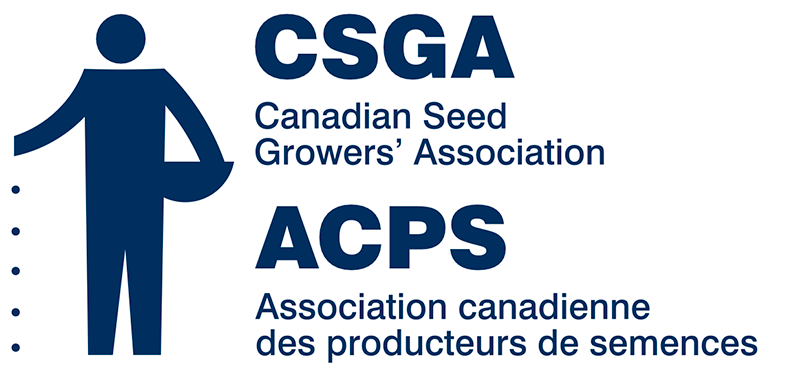What is Canadian Certified Seed?
The sale of Certified seed, labeled with an official Canada Certified blue tag, is regulated by the Canadian Food Inspection Agency (CFIA). Certified seed is produced by CSGA seed growers for sale to farmers to plant their commercial grain acreage. Each seed grower is required to follow stringent production requirements to ensure that quality, varietal identity and purity standards are met right from the start.
Inspections of Certified seed fields and processing plants ensure that all quality assurance requirements are met. This involves three main components:
- Varietal identity and purity – All Certified seed crops must meet standards for parent seed pedigree, minimum isolation distances, land-use history, maximum levels of off-types or other varieties to maintain varietal identity and purity.
- Germination – Documented results from federally accredited seed labs confirm seed purity and germination of all Certified seed crops.
- Freedom from impurities – In the field, inspectors licensed by the CFIA verify compliance with limits on weeds and other crop kinds. In the processing plant, regular sampling by federally-accredited graders verifies compliance with federal seed regulation standards for mechanical purity which include weeds and other crop kinds.
In contrast, common seed is multiplied without any officially-recognized inspections to confirm varietal identity and purity.
For Canadian farmers, planting Certified seed provides better quality grains and oilseeds, new marketing opportunities for their crop, risk management and access to new varieties that are bred for success.
For food processors, using grains and oilseeds grown from Certified seed offers assurance that you are starting with the best ingredients available – and that is the foundation of quality foods. Explore more about how Certified seed gives you access to quality assurance, identity preservation, traceability and innovation.








